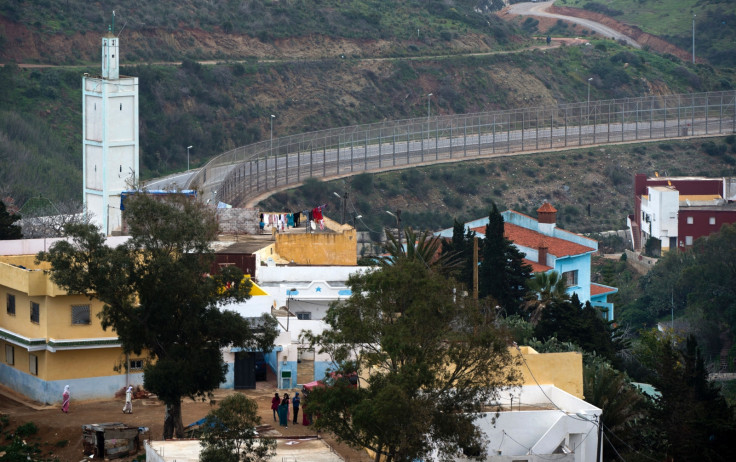Female porter crushed to death at Ceuta-Morocco border crossing
One Moroccan politician said thousands of people are 'humiliated on a daily basis'.

A female porter was crushed to death as a stampede broke out at a border crossing between Morocco and Spain's North African enclave of Ceuta.
The incident took place on Monday (24 April). According to Moroccan news agency MAP, the victim "fainted as a result of a crush at an entrance gate to the border post".
Ceuta is one of two enclaves that form the European Union's (EU) only land borders with Africa, the other being Melilla (located along the coast some 250 miles away).
The woman was transported to a hospital in the town of Fnideq where she died. Authorities have launched a probe into the matter.
The crush happened on the Moroccan side, Mohamed Benaissa of the Northern Observatory for Human Rights confirmed to Agence France-Presse (AFP) news agency. "A 50-year-old woman died and four others were injured," he added.
It is the second such case in as many months. In March, another woman died after she was trampled.
Reacting to the circumstances around the unidentified woman's death, the leader of the Authenticity and Modernity Party (PAM) compared the daily experiences of Moroccans at the Ceuta post to those lived by Palestinians.
"The same troubles the Palestinians face at the gates put up by Israel in front of the Al-Aqsa mosque, in opposition to international agreements is what the waves of people live every morning at the illusory crossing of Ceuta," said Ilyas El Omari, according to Morroco World News.
He added that thousands of people are "humiliated on a daily basis".
Each day Moroccan women line up for the chance to earn a living carrying huge loads from Ceuta to Morocco. They are known as "porteadoras" (carriers) in Spanish or "femme mulets" (mule women) in French.
According to a 2015 report by Public Radio International (PRI), due to "a legal loophole tolerated by both the Spanish and Moroccan governments, the goods they carry, which could include anything from Red Bull to cheap diapers, are considered 'personal luggage' and are therefore untaxed."
The load the women bear could weigh as much as 100kg and the trade represents up to a third of Ceuta and Melilla's economic activity, according to the American Chamber of Commerce in Morocco.
But when there is commotion, Spanish guards intervene and many women say they have been hit as a result.
Critics say the women are humiliated and treated like "mules" for their ability to carry heavy loads.
© Copyright IBTimes 2024. All rights reserved.






